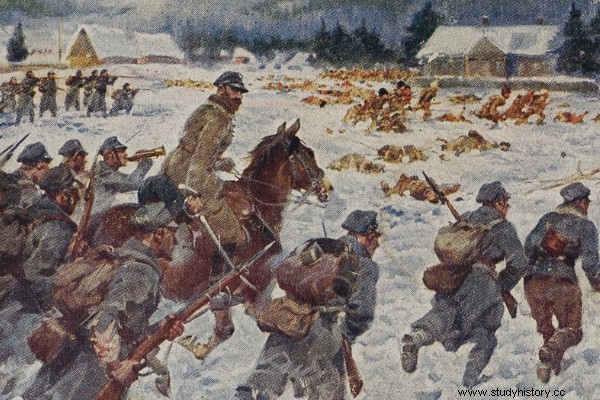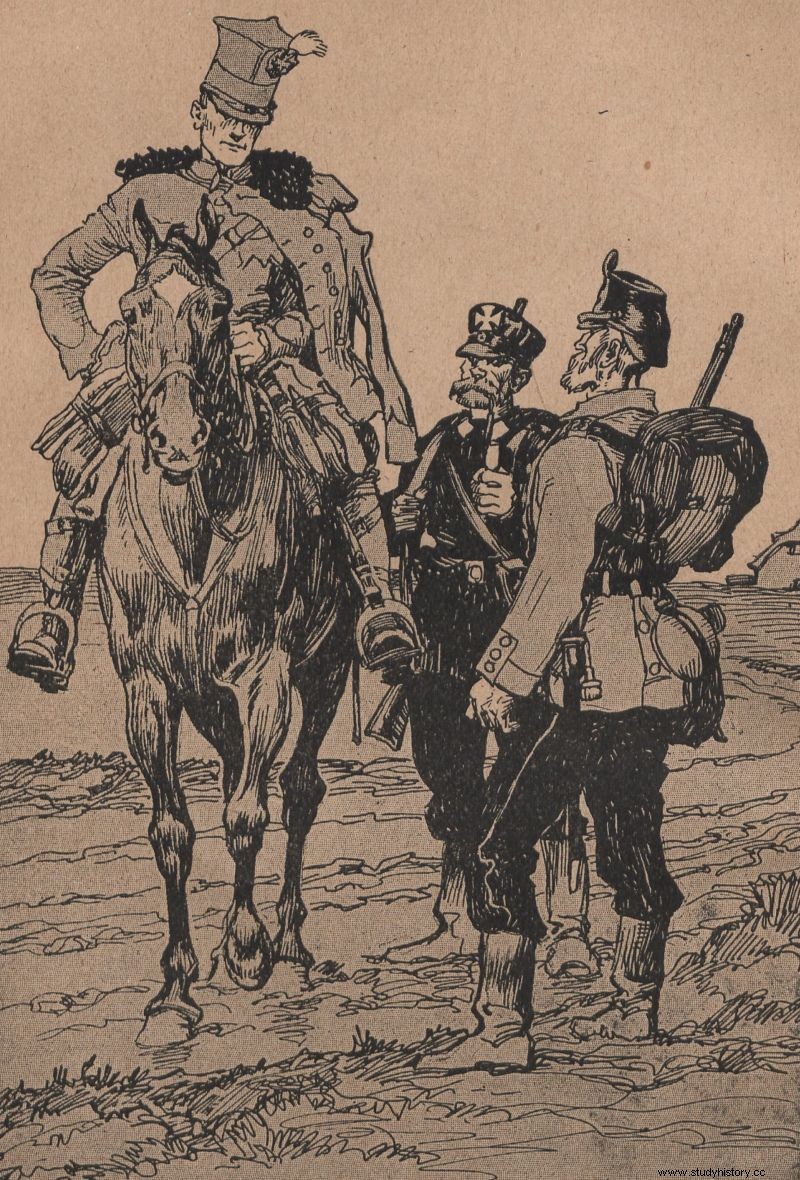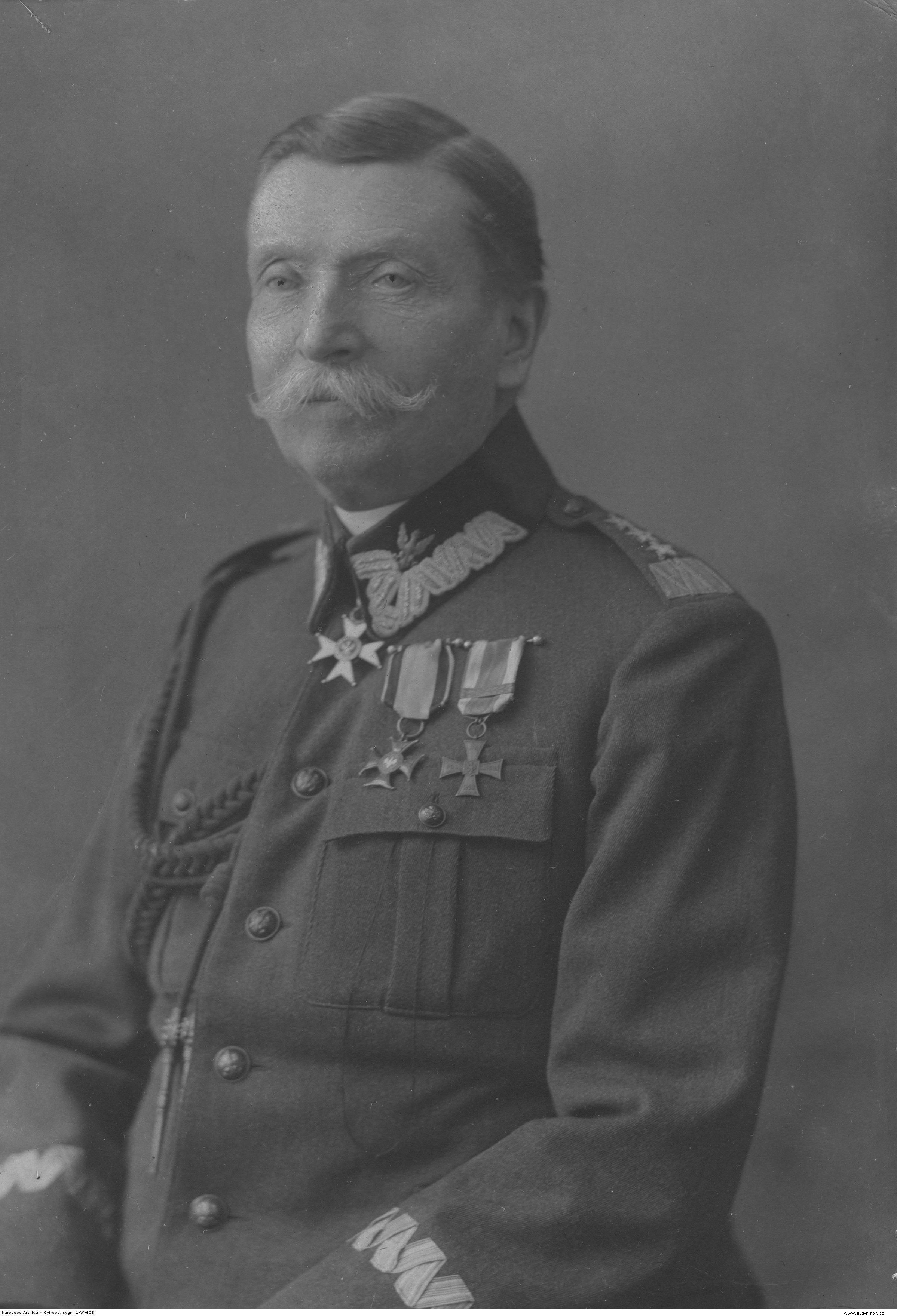Historians love to write about the "sacrifice of blood" and about great sacrifice. It would be fairer to say that ours were sent to slaughter. Unreasonably and without purpose.
The casualties suffered by the legionnaires - Polish soldiers who fought alongside the Central Powers in World War I - were simply unimaginable. In total, well over forty thousand soldiers passed through the three brigades of the Polish Legions. It "rewound" because the rotation was endless.
Only the second brigade and only in the first year of fighting lost almost half of its manpower. And then things didn't get any better. The Austrians did not treat the Legions as an allied army. They did not even approach them as a mass move, but rather:as if the Poles were worthless cannon fodder.
Polish soldiers received the worst, most dilapidated equipment . It even happened that they were assigned cannons obtained straight from ... a museum exhibition. There was no provisions, basic utensils, warm clothes or even underwear. The legions looked like ragged gangs. But it was these rascals who were sent to the hardest, downright doomed tasks, completely disregarding their lives.
Even the Russians were shocked
At Rokitną, in April 1915 , a detachment of Polish lancers was ordered to capture the enemy trenches bristling with machine gun barrels. The charge immediately turned into a bloodbath. In just thirteen minutes, a quarter of the cavalrymen were killed and half injured. Three of the four squadron officers were also killed.
Even the Russians could not believe that "the other side was so disregarding the enemy." The equestrian attack on rifles was contrary to the absolute foundations of the art of war. Could not succeed under any conditions.

The night battle at Rafajłowa fought by the 3rd Legionary Infantry Regiment.
In July of the same year, near Jastków , the legion's infantry regiment was massacred when the commanders sent it to attack without providing any artillery support or even putting more machine guns at its disposal. The men were going straight to the slaughter because they were not protected, but the Austrians.
The overlords made no conclusions. In November, the story repeated itself, this time at Kostiuchnówka:in the course of a senseless attack on a fortified hill, a battalion of another regiment was literally mowed down with hostile volleys. The Russians had rifles and artillery cannons. And the Poles? Mainly iron will and strength in the legs. By the time they reached their destination, the squad had lost half of its soldiers .
Mediocre but faithful
There are many similar, shocking stories. The enormity of the death burdened the consciences of nonchalant Austrian officers, but not only them. Poles also made numerous mistakes. And it is hardly surprising, given that the high command of the army imposed on the Legions mediocre, lost, proud or outright inept overlords.

Learn about the fate of women who won independence for Poland, and for themselves - freedom, voting rights and the dignity that have always been denied them. The latest book by Kamil Janicki, 'Niepokorne damy. Women who won an independent Poland ”now available for sale!
Only one criterion was attached to importance:officers were to be utterly loyal to the Habsburg throne.
The first commandant of the Legions, Karol Durski-Trzaska, was simply famous for his indecision and hesitancy. Even in the middle of a battle, he was prepared to change key orders for no reason. He did not have any particular talents or the agility needed for this position. He also simply did not have the strength. Before he was made commander, he had been retired for several years. And I don't think he wanted to return to active duty at all.
Many of his direct reports represented even less of themselves. For example, the Austrian officer Ferdinand Küttner was made commandant of the second brigade. A man who lived in Galicia for a long time, but did not even learn to speak Polish well. Besides, he was another old man who deserved not his own command, but at most a rest.
He suffered from sclerosis so severe that he could not remember either his own orders or even the opinions he had formulated. He was able to give contradictory orders to his subordinates several times in one day. It also happened that the same people were first scolded for insubordination, and after a few hours he was promoted and awarded with orders. It was no coincidence that his subordinates called him "the head of the head". With such commanders, who else needs enemies?

"Polish Equestrian Legionnaire and German Commoners". Illustration from the work "The Great War of 1914-1915 with numerous illustrations and with particular emphasis on the battles in Poland".
Allies plot
The Overlords went to great lengths to strip the Legions of their common identity and block their path to success. The troops were divided and sent to various stages of the fighting, and even to different fronts, so that the soldiers could not see their own strength and that no victory could be attributed to the Poles alone. The legionnaires were ordered ruthlessly to conduct reconnaissance by battle, where it was known in advance that the advantage of the enemy was overwhelming. Or:to cover the retreat of the Austrians, even if it meant staying behind the enemy's rear, in a clinch threatening to completely crush a given battalion.
Even the most optimistic people began to suspect that Vienna was not so much downplaying the role of the Polish army, as even - striving to exterminate it physically in order to get rid of the most fierce and rebellious patriots.
"Involuntarily, it comes to our mind whether there is some behind-the-scenes Austrian intrigue playing a role here, that is, they just want to get rid of the Legions" - wrote not just anyone, but August Krasicki, a direct adjutant of all the next officers occupying the position of the Legion Headquarters commander . The bitterness was all the greater because the legionnaires were not even allowed to fight in Poland and for Poland - so to do what they put on uniforms and matzevot.

General Karol Trzaska-Durski in portrait photography.
At the turn of summer and autumn 1914, when a fierce battle was taking place in defense of Galicia, half of the Legions were sent ... to the Hungarian Carpathians. Poles were to defend not their homes, towns and families, but distant Bukovina. After a few months, the troops were transferred to Volhynia, but the brigade was already decimated and exhausted by the constant struggle in terrible climatic conditions.
New humiliations awaited the Poles. They had to passively observe how German allies - like a swarm of locusts - plunder the property of Polish peasants, torment their families and destroy their farms. They themselves were also exposed to more than one display of contempt. Even when the soldiers were sent away for the winter rest, they were ordered to quartered in the middle of the marshes and to build mud huts themselves to withstand the severe frosts. Meanwhile, the Austrians rested in comfort, in a dry forest, often in real houses, and not in makeshift shelters ...
How do you justify a collective murder?
The hanged mood influenced even the most determined and belligerent commanders, fighting not for this or that Habsburg, but for the Polish cause. Brought up on romantic literature, fed with tales of heroic suffering and symbols of sacrifice, they convinced themselves and their subordinates that they could not be led under a butcher's knife, but rather:make the necessary bloody sacrifice. After the charge at Rokitna , which was completely meaningless and ended in a complete defeat one of the legionnaires wrote in his journal:
Not only we who survived the day, but all of Poland will remember this day of glory and sorrow. As Samosierra once engraved with golden letters in the history of the Polish army, our children will learn the history of that day, our children will praise [this charge].

The newest book by Kamil Janicki "Unqualified ladies. Women who won an independent Poland. ”
It didn't matter to him that the famous charge of Somosierra Although at the cost of huge Polish losses, it was a success, opening the way for Napoleon to conquer Spain. And Rokitna? Its only result was a mass funeral.
Nevertheless, another legionnaire, who personally rode his horse to the enemy's trenches, recalled over the graves of his colleagues:“Here are our comrades. Sent to death, they rode with full awareness of it, but not one of them turned his horse back. Willingness to lay down my life, even when victory was out of the question, became the highest ambition. And maybe it had to happen if the Austrians faced the legionnaires with a hopeless dilemma:they could only desert or die obediently.
